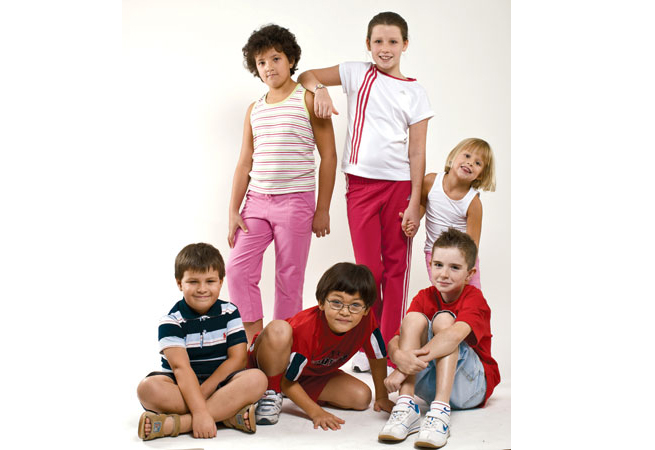They may only be small but kids are set to be the next big thing for the fitness, sports and recreation industry. Louise Birchall investigates how tapping into the youth market can increase member retention and boost revenue.
It's no secret that catering for kids is expensive, but it's a worthy investment capable of significant returns, which is why fitness facilities in the region should follow the world's mini-market trend.
"I would say that kids are going to be one of the hottest new trends for the next few years. It's the idea of engaging the family," says Simon Brown, health and fitness manager at The Aviation Club in Dubai.
"In the UK, children's leisure is very much a commodity and it's definitely an area for development here. I'm sure the first health club that really catches onto the concept of letting the mother work out or do a fitness class, while the kids also get the opportunity to exercise, will do extremely well in the long run," asserts Brown.

| Advertisement |
Family business
Attracting kids is particularly significant at a time when growing competition in the Middle East's leisure industry is forcing sports and fitness facilities to adopt an increasingly aggressive sell mode to counteract a huge turnover of memberships.
To stay ahead of the game, health clubs should be focussing their efforts on retaining members, which combined with a steady flow of newcomers is the key to increasing revenue. One of the ways to do this is by catering for the whole family, including the children.
"One of the best ways to not only increase retention but to attract new members and even increase membership dues is to boost the perceived value of the club. Offering great value to the entire family of members, including kids, is one of the best ways to achieve this," says Randy White, CEO of White Hutchinson Leisure and Learning Group, an international consulting company specialising in family and children-orientated leisure facilities.
The company has offices in the US, Doha and Qatar, and has worked alongside more than 400 facilities in 24 countries.
"Most clubs are focused on men. If a club expands its offerings to attract children, membership value greatly increases - to attract children though, you need to also cater for the mother," explains White.
"As a result, membership prices can be increased to include the entire family. A club with high-perceived value to families typically has much greater membership-retention rate," he adds.
While this thought process has been successfully put into action in clubs worldwide, the less mature health and fitness industry in the Middle East has yet to fully exploit the emerging market.
A healthier generation
Clubs that are willing to make the investment in children will immediately be put at an advantage due to the region's family-based culture and weather-limited outdoor recreational activities. On top of this is the growing concern for the younger generation's fitness.
"The volume of family leisure facilities in the UK and US is indicative of the number of families wanting to spend their time together," says Nayad Miyan, senior business development manager, Dubai Properties.
"Physical activity for children is certainly something that needs to be addressed, particularly in Saudi Arabia, which has the greatest percentage of obesity in the region," he continues.
"It's not a fad and shouldn't be something people are joining because they can afford to or because it's trendy; it should be engaged as part of our ethos - a change in lifestyle."
"The cost of an inactive, overweight or obese society will be huge in years to come if trends that are already experienced in other advanced societies are not intercepted now," says Andrew Dick, senior vice president, business development, Al Kamda.
Miyan also says that the more sports facilities are creative and open to cater for all ages, the more successful they'll be.
"If you have got a family of four, you are going to be providing facilities for all of them and your retention rates are going to be so much more bankable," he explains.









 Search our database of more than 2,700 industry companies
Search our database of more than 2,700 industry companies









